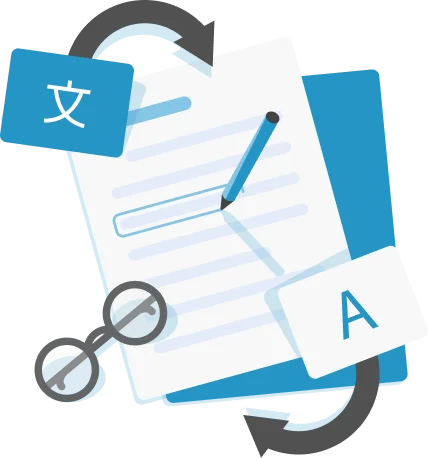
A Trusted Partner For Legal Translation Services
As the world gets smaller and smaller, law firms are realizing a pressing demand to expand their outreach. This highlights the need for professional translation in the legal industry. Linguistic and cultural barriers emerge as a formidable challenge down the road. Removing these barriers and ensuring the accurate conversion of legal content requires specialized expertise. This is where you need CCJK. We’re a professional translation company that has been delivering the best legal translation services since 2002. Our legal translators are seasoned professionals with an unrivaled reputation for performing legal translations with accuracy. Contact us today to invade foreign markets and capture a huge worldwide audience.
Build Bridges With Legal Document Translation Services
From court papers and wills to legal contract translation services, we help you transform all kinds of legal texts, paving the way for your global success.
- Court pleadings/papers
- Arbitration and disputes
- Insurance claims
- Power of attorneys
- Wills & Judgments
- Birth certificates
- Marriage certificates
- Divorce certificates
- Death certificates
- Immigration documents


Legal Language Translation Services For All Industries
Our experts devlier translation services for legal documents regardless of the domain or industry. Tell us about your industry and we will match you with a translator who knows your business.
- Healthcare
- Real estate
- Insurance
- Oil & gas
- Technology
- Manufacturing
- Banking & Finance
- Private equity, and more.
Our Qualified Legal Translators
CCJK is a big legal translation company with 30,000+ native linguists located in the U.S., UK, China, Italy, Germany, Japan, and Turkey, among many other countries. You only get the service of translators who are specialized in the legal industry. They only translate into the language they speak natively and also have fluency in the source language. And not to mention their advanced degrees and years of experience translating legal text. All this enables them to write with simplicity, clarity, and context. For this reason, you can trust our services to produce a legal translation with the highest quality.

Legal translation made easy. Why wait?
Getting The Legal Terminology Right
Having language and cultural awareness isn’t enough to offer certified legal translation services. It takes more than just that. A translator unfamiliar with the legal content will ruin the translation big time. You need experts on your side who can get across the complex terminologies and jargon in the legal industry. This is where we at CCJK thrive. Our highly-trained professional translators understand what language is used in the legal industry. This enables them to render a translation that’s meticulously accurate and easy to understand.

We’re A Leading Legal Translation Agency
CCJK brings more than 20 years of experience providing native-quality legal translation services at the best prices.
30,000+ native translators
We’re a diverse tribe of 30,000 professional translators who only translate in their first language and specialty area, ensuring well-worded, localized translations every time.
Quick turnaround
We boast some of the fastest turnaround times in the translation industry. However, this does not compromise our commitment to quality.
ISO certified
Being an ISO-compliant Legal translation company, we promise translation services of the highest quality humanly possible.
230+ languages
We present your business to the world in as many as 230 languages and 800+ language combinations. From English to Japanese, Arabic to Cajun - we’ve got the entire globe covered.




